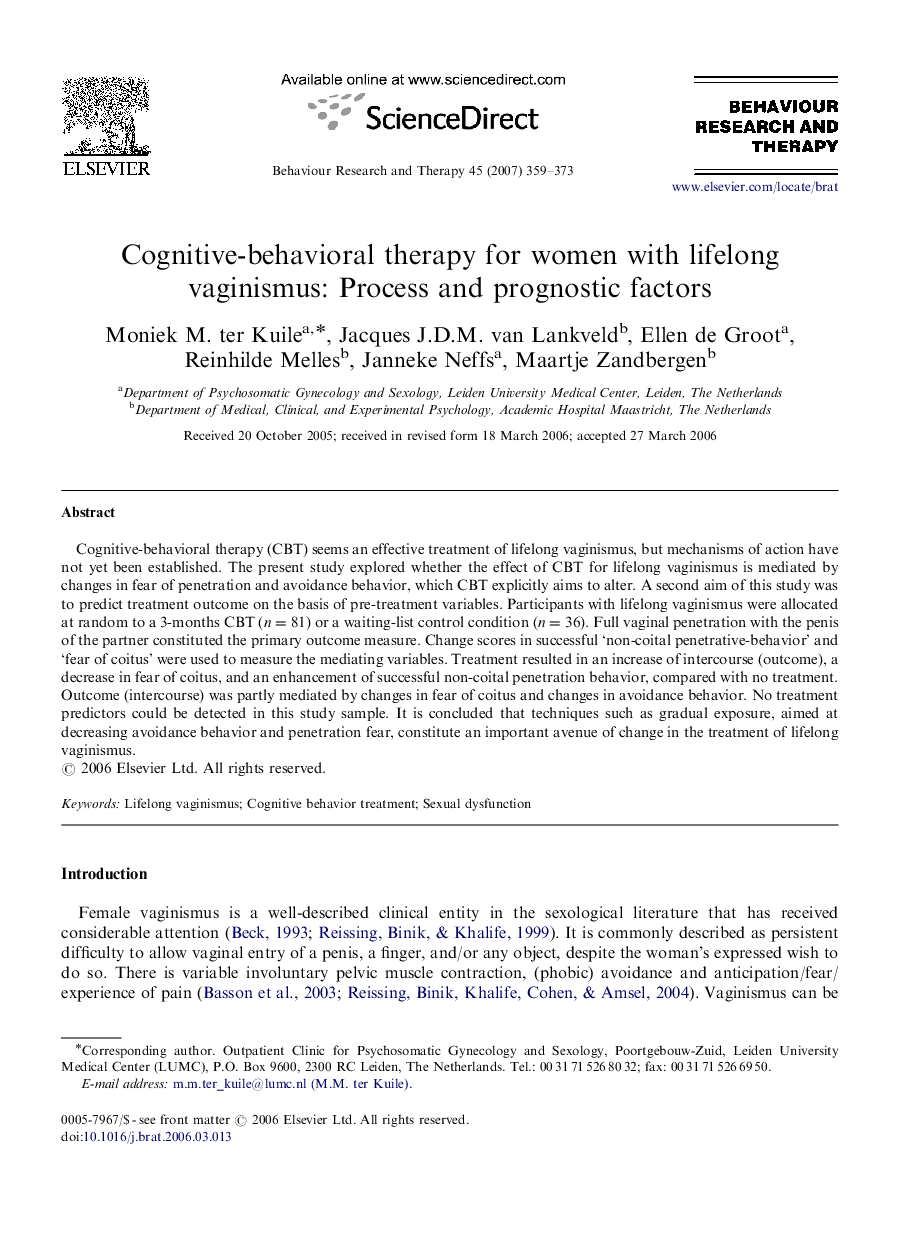| Article ID | Journal | Published Year | Pages | File Type |
|---|---|---|---|---|
| 902504 | Behaviour Research and Therapy | 2007 | 15 Pages |
Cognitive-behavioral therapy (CBT) seems an effective treatment of lifelong vaginismus, but mechanisms of action have not yet been established. The present study explored whether the effect of CBT for lifelong vaginismus is mediated by changes in fear of penetration and avoidance behavior, which CBT explicitly aims to alter. A second aim of this study was to predict treatment outcome on the basis of pre-treatment variables. Participants with lifelong vaginismus were allocated at random to a 3-months CBT (n=81) or a waiting-list control condition (n=36). Full vaginal penetration with the penis of the partner constituted the primary outcome measure. Change scores in successful ‘non-coital penetrative-behavior’ and ‘fear of coitus’ were used to measure the mediating variables. Treatment resulted in an increase of intercourse (outcome), a decrease in fear of coitus, and an enhancement of successful non-coital penetration behavior, compared with no treatment. Outcome (intercourse) was partly mediated by changes in fear of coitus and changes in avoidance behavior. No treatment predictors could be detected in this study sample. It is concluded that techniques such as gradual exposure, aimed at decreasing avoidance behavior and penetration fear, constitute an important avenue of change in the treatment of lifelong vaginismus.
